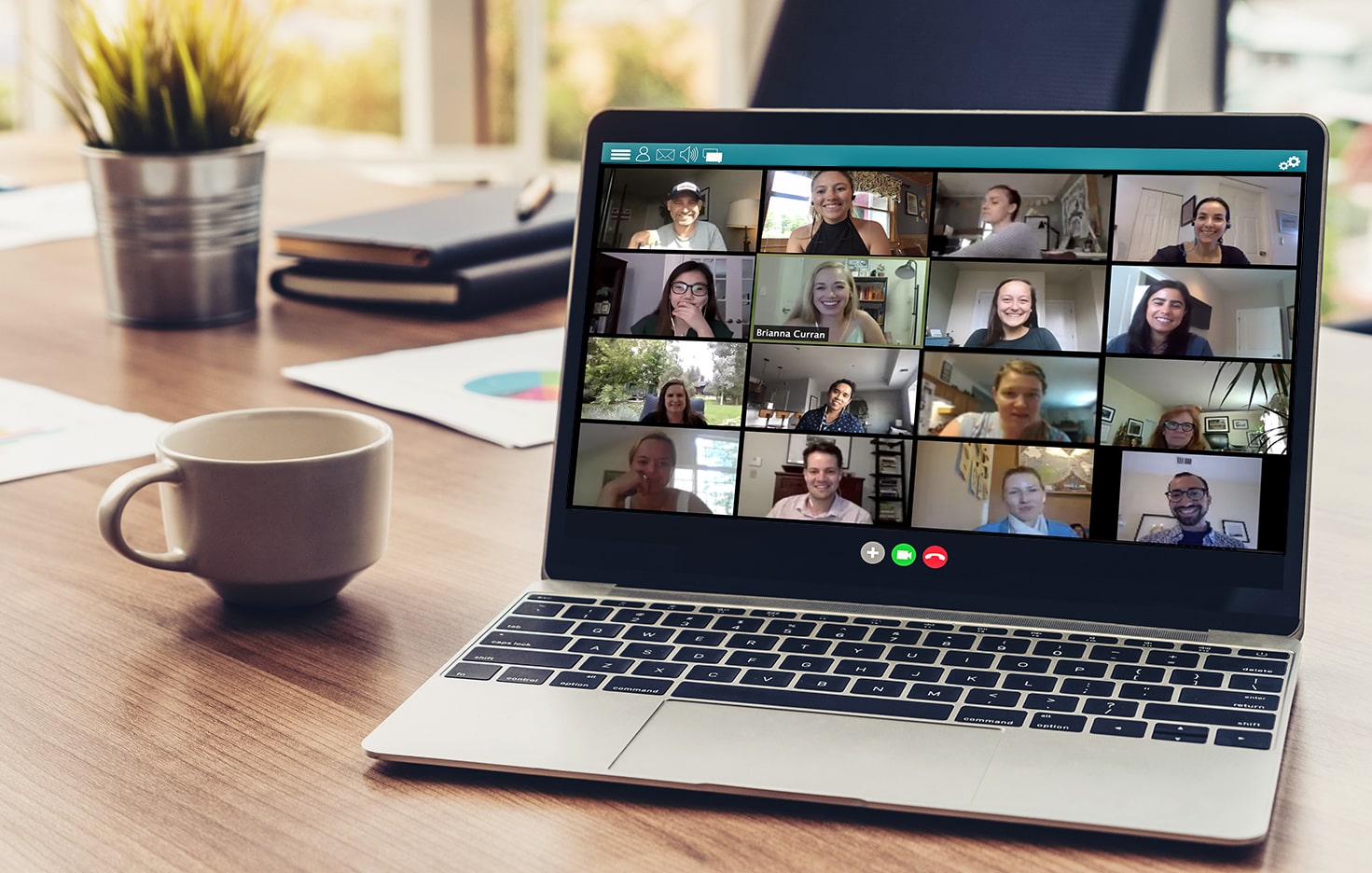Throughout our nation’s history, race and welfare have been linked in public discourse, with perceptions of race and poverty shaping who gets to benefit from social and economic policy and who gets left behind. In this session, we will examine the history of social welfare programs in the United States and explore how institutionalized racism and stereotyping of marginalized communities has shaped public policy and economic opportunity for communities of color. We’ll also explore how better investments in our social and economic opportunity programs can advance racial justice and create thriving, equitable communities. Session Goals:To explore how racism has shaped economic and social policy in the United States—from housing policy, to the Trump Era public charge rule, to the exclusion of returning citizens. To unpack how systemic racism and stereotyping inform the way we think about the social safety net in the U.S., and to challenge assumptions about who uses these vital programs and why. To put forward solutions that create economic opportunity for all communities. Meet Our Panelists Parker Gilkesson is a senior policy analyst with CLASP’s Income and Work Supports team. She specializes in work support programs for people with low incomes and focuses on the Supplemental Nutrition Assistance Program (SNAP). Parker is a subject matter expert in social policy, benefit eligibility, human services delivery, racial equity, community partnership, and state and local policy regarding SNAP, Temporary Assistance for Needy Families (TANF), and Medicaid. She has been quoted in TIME Magazine, New York Times, National Public Radio, The Hill, and many more.
Parker Gilkesson is a senior policy analyst with CLASP’s Income and Work Supports team. She specializes in work support programs for people with low incomes and focuses on the Supplemental Nutrition Assistance Program (SNAP). Parker is a subject matter expert in social policy, benefit eligibility, human services delivery, racial equity, community partnership, and state and local policy regarding SNAP, Temporary Assistance for Needy Families (TANF), and Medicaid. She has been quoted in TIME Magazine, New York Times, National Public Radio, The Hill, and many more.  Yolanda M. Gordon started her advocacy journey in the disability advocacy arena after her younger children were diagnosed on the Autism Spectrum. She learned how to advocate for her children’s educational needs. Yolanda is a former safety net program recipient. She currently works at RESULTS Educational Fund as the Manager of Expansion and Advocacy. Her role includes being the coordinator for the RESULTS Organizing and Advocacy Fellowship which teaches young leaders, ages 20-35, how to speak to their members of Congress about ending poverty, making tax credits permanent, investment in global education, global nutrition, and affordable housing. She is also a leader with her work on anti-oppression, intersectionality and poverty, and its effects on individuals and families. She has used her experience to lobby Congressional leaders of South Carolina on the needs of families in the state to ensure that their voices are heard. Yolanda is a Moth Trained storyteller, TEDx speaker, and has spoken at many conferences from Missouri State University to George Washington University. She currently lives in Fort Mill, South Carolina.
Yolanda M. Gordon started her advocacy journey in the disability advocacy arena after her younger children were diagnosed on the Autism Spectrum. She learned how to advocate for her children’s educational needs. Yolanda is a former safety net program recipient. She currently works at RESULTS Educational Fund as the Manager of Expansion and Advocacy. Her role includes being the coordinator for the RESULTS Organizing and Advocacy Fellowship which teaches young leaders, ages 20-35, how to speak to their members of Congress about ending poverty, making tax credits permanent, investment in global education, global nutrition, and affordable housing. She is also a leader with her work on anti-oppression, intersectionality and poverty, and its effects on individuals and families. She has used her experience to lobby Congressional leaders of South Carolina on the needs of families in the state to ensure that their voices are heard. Yolanda is a Moth Trained storyteller, TEDx speaker, and has spoken at many conferences from Missouri State University to George Washington University. She currently lives in Fort Mill, South Carolina. Gabriel R. Sanchez, Ph.D., is a David M. Rubenstein Fellow in Governance Studies at The Brookings Institution. He also serves as a Professor of Political Science and the Founding Robert Wood Johnson Foundation Endowed Chair in Health Policy at the University of New Mexico. Dr. Sanchez is also the Director of the UNM Center for Social Policy, and a founding member of the UNM Native American Budget and Policy Institute. Sanchez is also a Principal at Latino Decisions, the nation’s leading survey firm focused on the Latino electorate. A leading expert on Latino and New Mexico politics and policy, he regularly provides political commentary to several state, national, and international media outlets including the New York Times, CNN, Los Angeles Times, and the Economist. Our Moderator
Gabriel R. Sanchez, Ph.D., is a David M. Rubenstein Fellow in Governance Studies at The Brookings Institution. He also serves as a Professor of Political Science and the Founding Robert Wood Johnson Foundation Endowed Chair in Health Policy at the University of New Mexico. Dr. Sanchez is also the Director of the UNM Center for Social Policy, and a founding member of the UNM Native American Budget and Policy Institute. Sanchez is also a Principal at Latino Decisions, the nation’s leading survey firm focused on the Latino electorate. A leading expert on Latino and New Mexico politics and policy, he regularly provides political commentary to several state, national, and international media outlets including the New York Times, CNN, Los Angeles Times, and the Economist. Our Moderator Alexis Fernández Garcia is Senior Director of Social Safety Net and is responsible for leading Code for America’s social safety net portfolio. Previously, Alexis was the CalFresh and Nutrition Branch Chief at the California Department of Social Services where she was responsible for the largest SNAP program in the country and led several initiatives to improve program access, streamline benefit delivery, expand work opportunities, and increase CalFresh participation. She received her Master of Social Work with an emphasis on management and planning from UC Berkeley and a BA in Ethnic Studies from UC San Diego. She lives in Sacramento, CA.Throughout our nation’s history, race and welfare have been linked in public discourse, with perceptions of race and poverty shaping who gets to benefit from social and economic policy and who gets left behind. In this session, we will examine the history of social welfare programs in the United States and explore how institutionalized racism and stereotyping of marginalized communities has shaped public policy and economic opportunity for communities of color. We’ll also explore how better investments in our social and economic opportunity programs can advance racial justice and create thriving, equitable communities. Session Goals:To explore how racism has shaped economic and social policy in the United States—from housing policy, to the Trump Era public charge rule, to the exclusion of returning citizens. To unpack how systemic racism and stereotyping inform the way we think about the social safety net in the U.S., and to challenge assumptions about who uses these vital programs and why. To put forward solutions that create economic opportunity for all communities. Meet Our Panelists
Alexis Fernández Garcia is Senior Director of Social Safety Net and is responsible for leading Code for America’s social safety net portfolio. Previously, Alexis was the CalFresh and Nutrition Branch Chief at the California Department of Social Services where she was responsible for the largest SNAP program in the country and led several initiatives to improve program access, streamline benefit delivery, expand work opportunities, and increase CalFresh participation. She received her Master of Social Work with an emphasis on management and planning from UC Berkeley and a BA in Ethnic Studies from UC San Diego. She lives in Sacramento, CA.Throughout our nation’s history, race and welfare have been linked in public discourse, with perceptions of race and poverty shaping who gets to benefit from social and economic policy and who gets left behind. In this session, we will examine the history of social welfare programs in the United States and explore how institutionalized racism and stereotyping of marginalized communities has shaped public policy and economic opportunity for communities of color. We’ll also explore how better investments in our social and economic opportunity programs can advance racial justice and create thriving, equitable communities. Session Goals:To explore how racism has shaped economic and social policy in the United States—from housing policy, to the Trump Era public charge rule, to the exclusion of returning citizens. To unpack how systemic racism and stereotyping inform the way we think about the social safety net in the U.S., and to challenge assumptions about who uses these vital programs and why. To put forward solutions that create economic opportunity for all communities. Meet Our Panelists Parker Gilkesson is a senior policy analyst with CLASP’s Income and Work Supports team. She specializes in work support programs for people with low incomes and focuses on the Supplemental Nutrition Assistance Program (SNAP). Parker is a subject matter expert in social policy, benefit eligibility, human services delivery, racial equity, community partnership, and state and local policy regarding SNAP, Temporary Assistance for Needy Families (TANF), and Medicaid. She has been quoted in TIME Magazine, New York Times, National Public Radio, The Hill, and many more.
Parker Gilkesson is a senior policy analyst with CLASP’s Income and Work Supports team. She specializes in work support programs for people with low incomes and focuses on the Supplemental Nutrition Assistance Program (SNAP). Parker is a subject matter expert in social policy, benefit eligibility, human services delivery, racial equity, community partnership, and state and local policy regarding SNAP, Temporary Assistance for Needy Families (TANF), and Medicaid. She has been quoted in TIME Magazine, New York Times, National Public Radio, The Hill, and many more.  Yolanda M. Gordon started her advocacy journey in the disability advocacy arena after her younger children were diagnosed on the Autism Spectrum. She learned how to advocate for her children’s educational needs. Yolanda is a former safety net program recipient. She currently works at RESULTS Educational Fund as the Manager of Expansion and Advocacy. Her role includes being the coordinator for the RESULTS Organizing and Advocacy Fellowship which teaches young leaders, ages 20-35, how to speak to their members of Congress about ending poverty, making tax credits permanent, investment in global education, global nutrition, and affordable housing. She is also a leader with her work on anti-oppression, intersectionality and poverty, and its effects on individuals and families. She has used her experience to lobby Congressional leaders of South Carolina on the needs of families in the state to ensure that their voices are heard. Yolanda is a Moth Trained storyteller, TEDx speaker, and has spoken at many conferences from Missouri State University to George Washington University. She currently lives in Fort Mill, South Carolina.
Yolanda M. Gordon started her advocacy journey in the disability advocacy arena after her younger children were diagnosed on the Autism Spectrum. She learned how to advocate for her children’s educational needs. Yolanda is a former safety net program recipient. She currently works at RESULTS Educational Fund as the Manager of Expansion and Advocacy. Her role includes being the coordinator for the RESULTS Organizing and Advocacy Fellowship which teaches young leaders, ages 20-35, how to speak to their members of Congress about ending poverty, making tax credits permanent, investment in global education, global nutrition, and affordable housing. She is also a leader with her work on anti-oppression, intersectionality and poverty, and its effects on individuals and families. She has used her experience to lobby Congressional leaders of South Carolina on the needs of families in the state to ensure that their voices are heard. Yolanda is a Moth Trained storyteller, TEDx speaker, and has spoken at many conferences from Missouri State University to George Washington University. She currently lives in Fort Mill, South Carolina. Gabriel R. Sanchez, Ph.D., is a David M. Rubenstein Fellow in Governance Studies at The Brookings Institution. He also serves as a Professor of Political Science and the Founding Robert Wood Johnson Foundation Endowed Chair in Health Policy at the University of New Mexico. Dr. Sanchez is also the Director of the UNM Center for Social Policy, and a founding member of the UNM Native American Budget and Policy Institute. Sanchez is also a Principal at Latino Decisions, the nation’s leading survey firm focused on the Latino electorate. A leading expert on Latino and New Mexico politics and policy, he regularly provides political commentary to several state, national, and international media outlets including the New York Times, CNN, Los Angeles Times, and the Economist. Our Moderator
Gabriel R. Sanchez, Ph.D., is a David M. Rubenstein Fellow in Governance Studies at The Brookings Institution. He also serves as a Professor of Political Science and the Founding Robert Wood Johnson Foundation Endowed Chair in Health Policy at the University of New Mexico. Dr. Sanchez is also the Director of the UNM Center for Social Policy, and a founding member of the UNM Native American Budget and Policy Institute. Sanchez is also a Principal at Latino Decisions, the nation’s leading survey firm focused on the Latino electorate. A leading expert on Latino and New Mexico politics and policy, he regularly provides political commentary to several state, national, and international media outlets including the New York Times, CNN, Los Angeles Times, and the Economist. Our Moderator Alexis Fernández Garcia is Senior Director of Social Safety Net and is responsible for leading Code for America’s social safety net portfolio. Previously, Alexis was the CalFresh and Nutrition Branch Chief at the California Department of Social Services where she was responsible for the largest SNAP program in the country and led several initiatives to improve program access, streamline benefit delivery, expand work opportunities, and increase CalFresh participation. She received her Master of Social Work with an emphasis on management and planning from UC Berkeley and a BA in Ethnic Studies from UC San Diego. She lives in Sacramento, CA.
Alexis Fernández Garcia is Senior Director of Social Safety Net and is responsible for leading Code for America’s social safety net portfolio. Previously, Alexis was the CalFresh and Nutrition Branch Chief at the California Department of Social Services where she was responsible for the largest SNAP program in the country and led several initiatives to improve program access, streamline benefit delivery, expand work opportunities, and increase CalFresh participation. She received her Master of Social Work with an emphasis on management and planning from UC Berkeley and a BA in Ethnic Studies from UC San Diego. She lives in Sacramento, CA.
Conversations on Food Justice, Session 10: Race, Poverty, and the Barriers to Accessing Social Benefit Programs
Note: This is a past event, additional resources may be available below.
Date
Tue Mar 8, 2022
1:30pm – 2:30pm EST
1:30pm – 2:30pm EST










